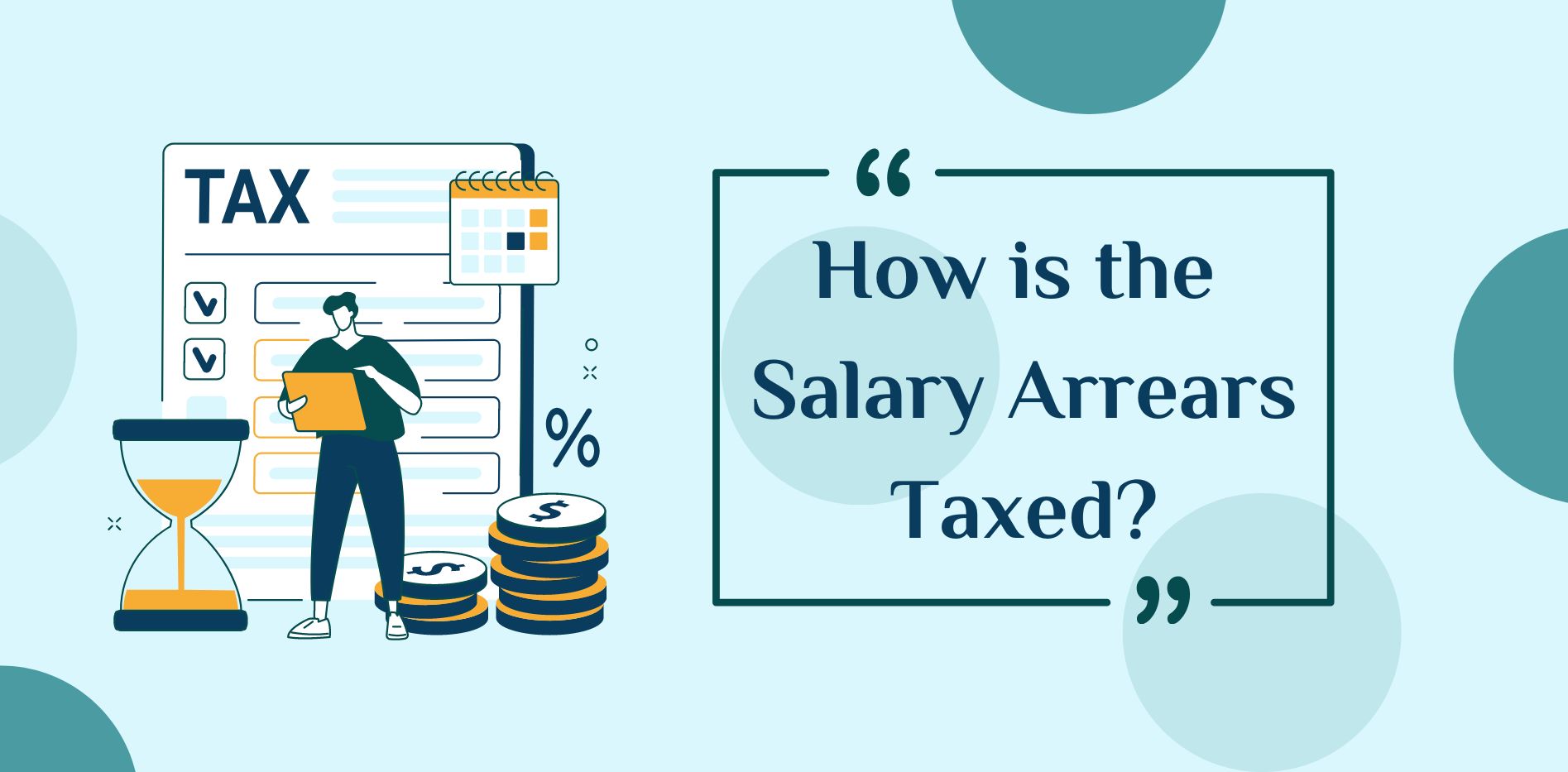How is the Salary Arrears Taxed?
What Is Salary Arrear?
Salary arrears are unpaid wages. This sum has not yet been paid to the employee. Every employer makes every effort to pay employees on time. However, due to factors such as compensation increases or organisational challenges, it may be difficult to pay the salary on time at times.
In this situation, the unpaid amount is carried over to the next salary cycle. There are various rules and regulations governing pay taxation. Employees are entitled to TDS exemptions on salary arrears.
Salary Arrear Taxation: TDS
The central government of India levies a tax on an individual’s income from numerous sources. The tax is known as income tax. Certain rules and regulations govern how tax is deducted from an individual’s income and wage. Income taxes are a significant source of revenue for both state and federal governments. Tax money is used by the government to fund public services.
The government taxes the total earnings of a fiscal year according to the rules established. There are numerous strategies to save tax on your pay or income. Your pay arrear may be exempt from taxes. A salary arrear is a payment that is owed to an employee. If you got a salary arrear, you must complete Form 10E and take advantage of the tax break in the year you received the salary arrear.

How is Salary Arrears Taxed, and What Are the Tax Exemptions?
According to the Income Tax Act of 1961, the tax will be deducted on an individual’s total annual earnings for the year. Certain exemptions are allowed based on the circumstances.
Section 89(1) of the Income Tax Act provides income tax exemption for salary arrears as well. If a person did not get their full salary in the prior year and is being paid in the following year, they may have to pay higher taxes if no exemptions were offered. TDS on salary arrears is exempted by the government.
The government offers Form 10 E, which must be completed in order to get tax exemption benefits on salary arrears. Examine the processes for completing form 10 E.
- Go to the income tax India e-filing website.
- Sign in to the website using your pan card and password.
- Now, at the top of the site, select the option e-file.
- In the drop down menu, select the option for Income Tax Forms.
- Now, select Form 10E and proceed.
- When a new page appears, you must enter information such as savings, PAN Card data, name, address, and so on.
- You must also select a residency status.
- After filling in all of the necessary and mandatory details, verify and preview the form before submitting it.
- If you see any issues, you may fix them by selecting the ‘edit’ option. The form can also be downloaded in PDF format.
Conclusion
Salary arrears are generally subject to taxation. When an employee receives arrears of salary, they are usually taxed in the year they are received, even if the income relates to a prior year. The tax treatment of salary arrears varies by jurisdiction, but in many cases, the arrears are taxed at the individual’s marginal tax rate. It’s important for individuals receiving arrears to consult with a tax professional or refer to the tax laws of their specific jurisdiction to understand the exact tax implications. Overall, salary arrears are typically subject to taxation, and individuals should be prepared for the tax consequences when receiving such payments.



